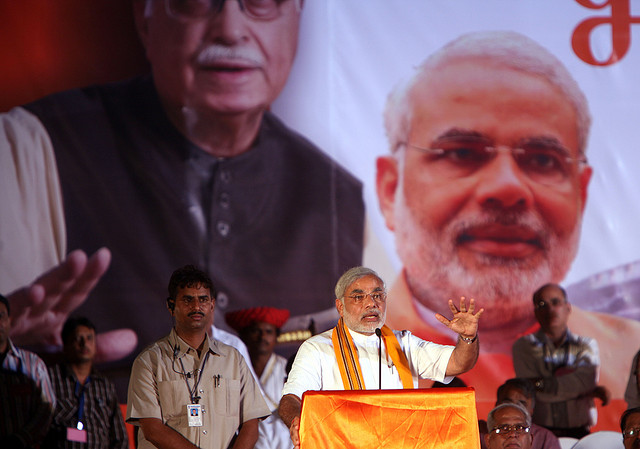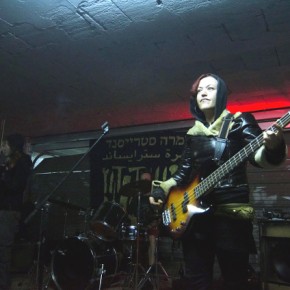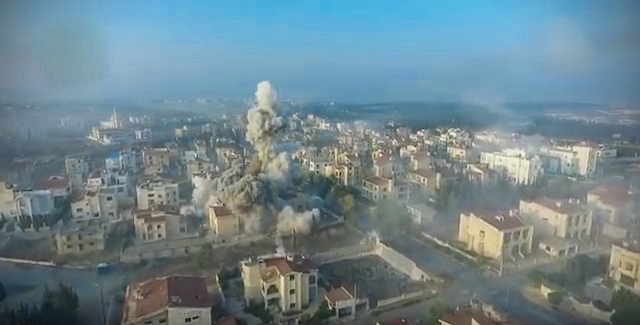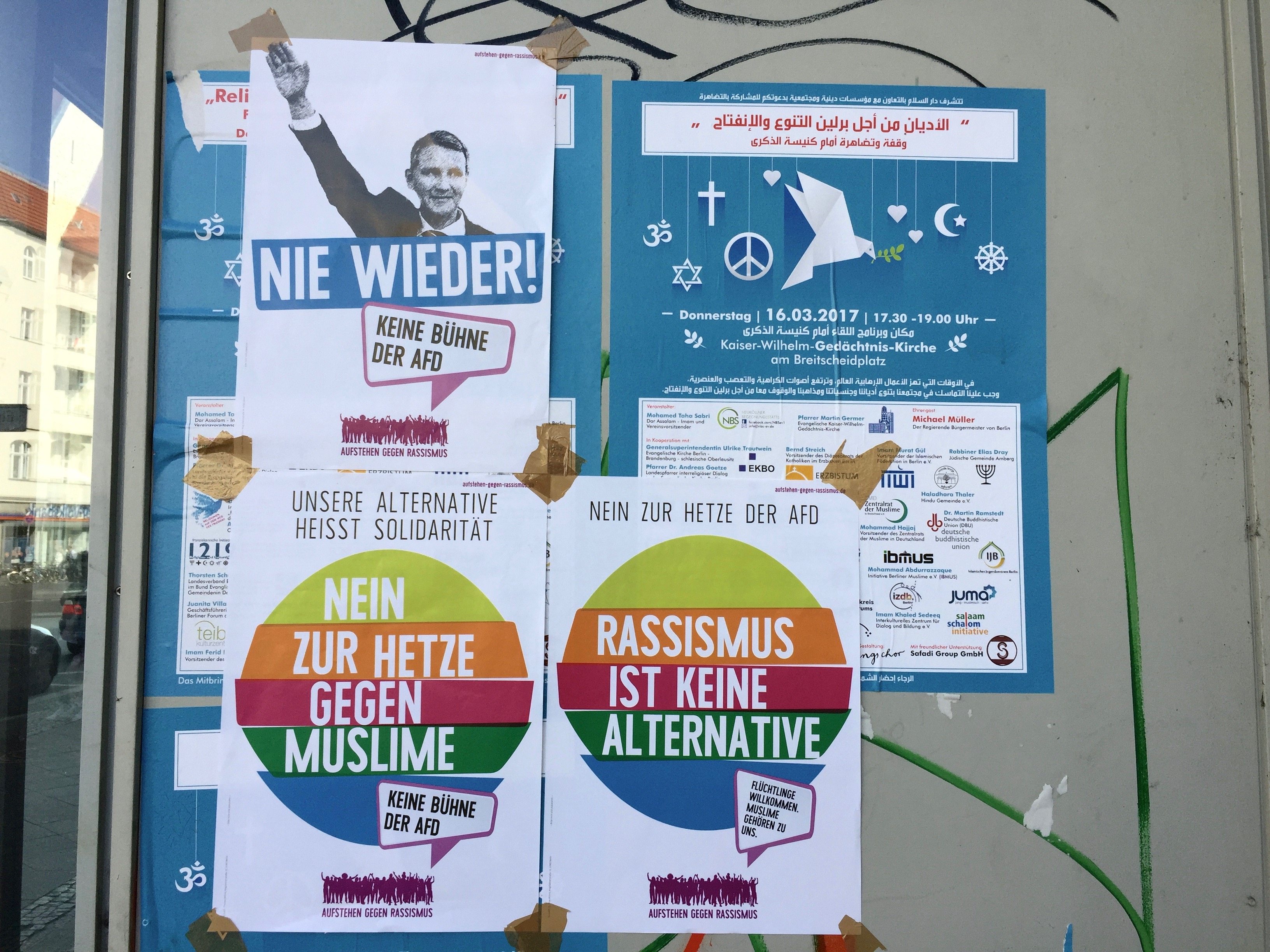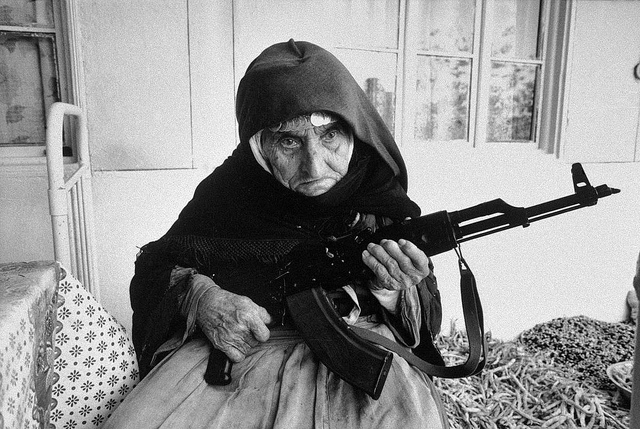It’s a leftist cliché. Every crisis-ridden country risks its own Weimar moment. Whether it’s true or not is almost beside the point. The original German reference is unique to its circumstance. Still, the admonition is not without merit. It works precisely because the analogy has a universal quality to it. India’s forthcoming elections are a good example.
Narendra Modi and his Bharatiya Janata Party could very well form a majority government when the 15th Lok Sabha completes its term on May 31. The results could be disastrous, both for India, and South Asia more broadly. The best strategy is for leftist parties to pursue any means to keep them from power.
Indian readers may find themselves skeptical at this parallel. After all, the BJP already led the national government from 1998 to 2004, relying on rightist interpretations of the Swadeshi movement, emphasizing social conservatism, laissez-faire economics, and nationalist foreign policy objectives. It is also currently led by Modi, who has ruled the state of Gujarat since 2001, and has overseen a great deal of its economic growth.
So what’s to fear? There’s nothing necessarily crisis-like in this scenario. The prevailing politics of the period are conservative, to be sure, but not necessarily dangerous, or a threat to India’s post-colonial order. However, it is crucial to remember that Modi presided over Gujarat during the vicious anti-Muslim pogroms in 2002, and more importantly, he remains unapologetic for it.
The violence in Gujarat is believed to have started as the result of a train attack on February 27th. 58 persons were killed, including many Hindu activists who were returning from work in Ayodhya. Although the official line was that Muslims carried out the assault, many commentators believe that it was planned and orchestrated in order to trigger anti-Muslim pogroms.
According to government figures, hundreds of people died in the resulting violence, which took place over a three day period. The death toll may in fact be in the thousands, depending on whether or not violent incidents in areas outside of the city are taken into account. However one spins the numbers though, the violence was overwhelming. Women were raped, children were burned alive and property was destroyed.

Narendra Modi was cleared of complicity in the pogrom by the India’s Supreme Court. Many commentators, however, were dissatisfied with the ruling, believing that evidence linking Modi to the events was deliberately suppressed by the authorities. Foreign critics of the ruling, including American philosopher Martha Nussbaum, have gone so far as to call what happened in Gujarat “a form of ethnic cleansing,” contending that “in many ways [it] was premeditated, and carried out with the complicity of the state government and officers of the law.”
At worst, this means that Modi may assume executive power despite being potentially complicit in ethnic cleansing. At best, this means that his government isn’t above allowing pogroms to take place. Massacres of this kind don’t just happen: they’re the result of organized scapegoating of national minorities. Such endeavors, on the scale of the Gujarat violence, cannot take place without some measure of state support. Modi’s complicity in the killings needs to be reexamined.
Hence, the Weimar analogy. The current layout of the Indian parliament echoes that of the 1932 Reichstag. An energetic right-wing party with clear ties to racist and nationalist violence is facing bitterly divided left-wing groups. Modi currently leads the National Democratic Alliance, which fell short of the 272 seats necessary for power with 159 seats. It has been polling well enough to potentially add big gains to that number, as opposed to the United Progressive Alliance, which has governed with a comfortable majority but has become increasingly unpopular. The United National Progressive Alliance continues to hold a strong minority presence in the Lok Sabha. If both coalitions rally their respective bases, and are willing to work together, then they could very well prevent Modi from taking power.
For Indian progressives, this may feel like drinking poison. The UPA has been aggressively pursuing neoliberal policies in the country, and continues to be plagued by patronage politics and other manifestations of elitism.
However, the question that needs to be answered for India’s Left is what kind of politics need to be practiced at the moment. The UNPA is currently led by Parakash Karat of the Communist Party of India (Maoist). Mao’s greatest success in the years before his own seizure of power was that he understood how marriages of convenience are sometimes necessary. It was the reason that he temporarily suspended his animosities with Chinese nationalists in order to oppose Japanese imperialism.
India is obviously in a different situation, but the same approach is necessary. Modi’s rule could very well result in a bloodbath. Disaster could be averted through wise politics.
Photographs courtesy of Al-Jazeera English and McKay Savage. Published under a Creative Commons License.
